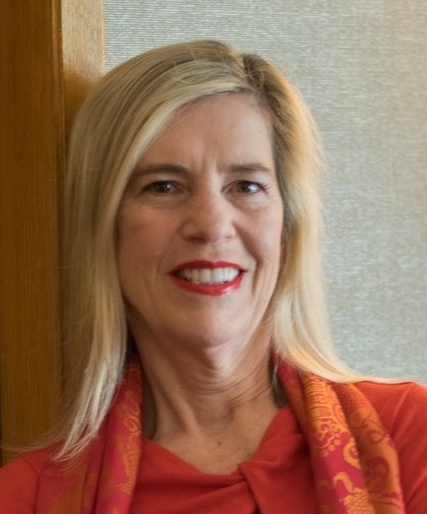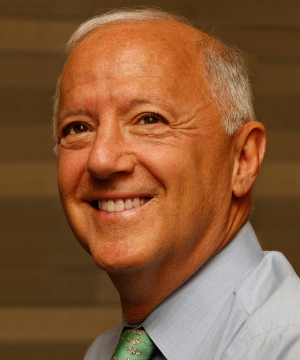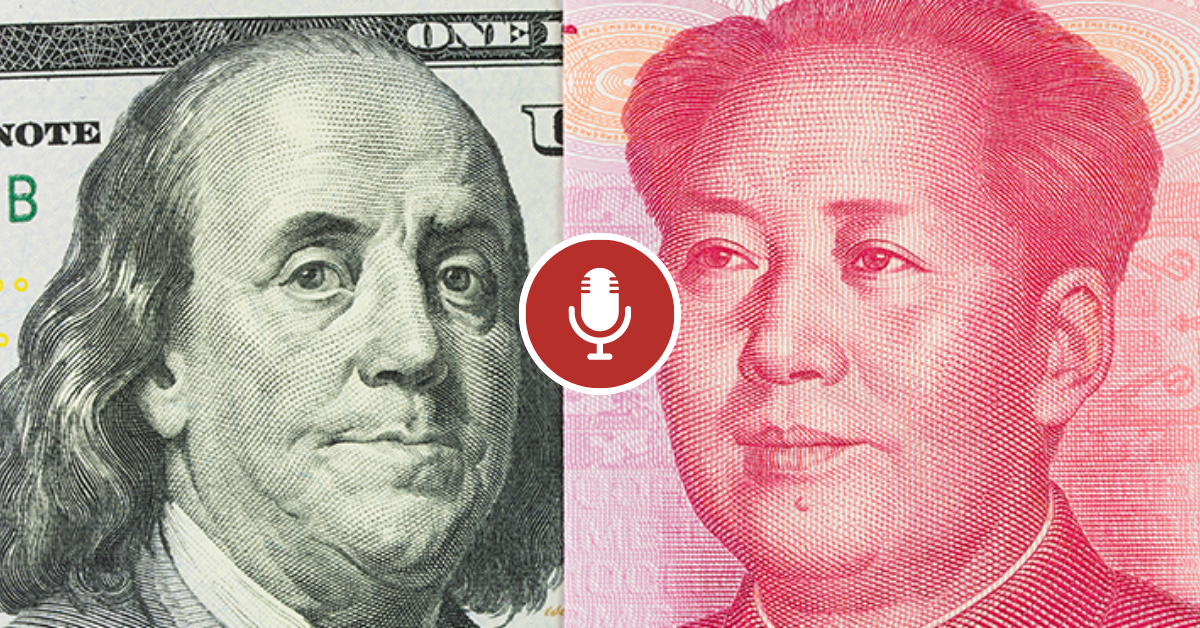Monday, May 11, 2020 | 8:00 PM EDT - 9:30 PM EDT
Zoom webinar | Thilo Hanemann, Daniel Rosen, Ker Gibbs, Rebecca Fannin
A deteriorating bilateral relationship and growing regulatory scrutiny have changed the trajectory of capital flows between the United States and China over the past three years. The COVID-19 pandemic threatens to further disrupt two-way investment, as weak Chinese consumption and supply chain risks make U.S. companies re-think their China footprint, and Chinese investors face continued headwinds from domestic restrictions on outbound capital flows and U.S. regulators wary of opportunistic foreign buyers.
The National Committee held a virtual event with report authors Thilo Hanemann and Daniel Rosen, both of Rhodium Group; Ker Gibbs, president, AmCham Shanghai; Rebecca Fannin, founder/editor, Silicon Dragon Ventures; and National Committee President Stephen Orlins to launch our new Two-Way Street: 2020 Update report and discuss the latest two-way investment data and analysis on May 11, 2020.
Here are the key takeaways from the report and discussion:
- In 2019 two-way capital flows between the United States and China dropped to the lowest level in seven years amid souring bilateral relations, greater regulatory hurdles, and a changing growth outlook in China.
- Chinese foreign direct investment (FDI) in the United States dropped to $5 billion – a level not seen since the global financial crisis in 2009 – as Beijing’s outbound policies, U.S. regulatory scrutiny, and an uncertain outlook for U.S.-China relations continued to weigh on investor risk appetite. The drop was felt broadly across industries but sectors with low political and regulatory risk – consumer products and services and automotive – have been the most resilient.
- U.S. FDI in China edged up slightly compared to previous years to $14 billion as U.S. firms continued to bet on Chinese consumer demand and seized opportunities from an easing of restrictions on foreign ownership in some sectors (including automotive and finance) but newly announced greenfield projects dropped, foreshadowing a slowdown in 2020 that was underway even before the COVID-19 pandemic disrupted the outlook.
- Chinese venture capital investment (VC) in the United States fell to $2.6 billion in 2019, reflecting technology market turbulence in China as well as U.S.-China political tensions and regulatory moves, including the passage of FIRRMA and ECRA. The contraction in 2019 affected all fundraising stages, target industries, and investor types.
- American-owned VC funds invested an estimated $5 billion in Chinese startups in 2019, a dramatic drop from the record $19.6 billion in 2018, reflecting a correction in China’s technology market as well as greater regulatory and political headwinds. Amid a broad-based decline across sectors, U.S. investment in health and biotech startups remained resilient.
- The Phase 1 deal in January provided an opportunity for a recovery of two-way capital flows in 2020 but the COVID-19 outbreak is casting dark shadows on the outlook. The lockdown of both economies has severely impacted flows in the first quarter of 2020, with newly announced Chinese FDI in the United States dropping to the lowest quarterly level in ten years. The pandemic has also further soured bilateral relations and set in motion a broader re-thinking of global economic interdependence.
Related Materials

Thilo Hanemann
Thilo Hanemann is a partner at Rhodium Group, and leads the firm’s work on global trade and investment. He supports the investment management, strategic planning, and policy analysis requirements of Rhodium clients within his fields of expertise. He is also a senior policy fellow at the Mercator Institute for China Studies, Europe’s biggest China think tank, located in Berlin. Thilo’s research focuses on new trends in global trade and capital flows, related policy developments, and the political and commercial dynamics of specific transactions. One of his areas of expertise is the rise of emerging economies as global investors, and the implications for host economies and the global economy. His most recent work focuses on the evolution of China’s international investment position, and the economic and policy implications of this new trend.

Daniel H. Rosen
Daniel H. Rosen is a founding partner of Rhodium Group and leads the firm’s work on China, India, and Asia. Mr. Rosen has twenty-six years of professional experience analyzing China’s economy, commercial sector and external interactions. He is widely recognized for his contributions on the U.S.-China economic relationship. He is affiliated with a number of American think tanks focused on international economics, and is an adjunct associate professor at Columbia University. From 2000 to 2001, Mr. Rosen was Senior Adviser for International Economic Policy at the White House National Economic Council and National Security Council. He is a member of the Council on Foreign Relations, and board member of the National Committee on U.S.-China Relations. A native of New York City, Mr. Rosen graduated with distinction from the graduate School of Foreign Service of Georgetown University (MSFS) and with honors in Asian studies and economics from the University of Texas, Austin (BA).

Ker Gibbs
Ker Gibbs has served as the president of AmCham Shanghai since January 1, 2019. He had been involved in the Chamber for many years as a member, committee leader, board member, and, during 2016-2017, its board chair.
His career has spanned Asia and Silicon Valley, with executive positions at Apple, Disney, and other technology and media firms. Most of his time in Shanghai has been in banking and investments. He was head of tech and media for greater China at HSBC, serving clients like Alibaba, Touch Media, and JD.com. As an investor, he has been active in hotels, e-commerce, and medical technologies. Mr. Gibbs first came to China in the mid-1980’s as a student, then returned in the 1990’s with the Boston Consulting Group. He has been living in Shanghai since 2002. He has an M.B.A. from the University of California, Berkeley and an undergraduate degree in economics from the University of California, Los Angeles.

Rebecca A. Fannin
Rebecca A. Fannin is the founder of news and events group Silicon Dragon Ventures. Her journalistic career covering global innovation began in Silicon Valley during the dotcom era. Following the venture capital trail to Asia, she was one of the first American journalists to write about China’s entrepreneurial boom, interviewing Jack Ma of Alibaba and Robin Li of Baidu, among others. A regular media commentator and speaker, she also has frequently contributed to CNBC and Forbes, and her articles have appeared in Harvard Business Review, CEO and Inc. magazine. Ms. Fannin’s three forward-looking books, Silicon Dragon, Startup Asia and her latest title, Tech Titans of China, are a go-to resource on top innovation trends and players.

Stephen A. Orlins
Stephen A. Orlins has been president of the National Committee on U.S.-China Relations since 2005. Prior to that, he was the managing director of Carlyle Asia and the chairman of the board of Taiwan Broadband Communications, one of Taiwan’s largest cable television and high speed internet providers. Prior to joining Carlyle, Mr. Orlins was a senior advisor to AEA Investors Inc., a New York-based leveraged buyout firm, with responsibility for AEA’s business activities throughout Asia. From 1983 to 1991, Mr. Orlins was with the investment banking firm of Lehman Brothers where he was a managing director from 1985 to 1991. From 1987 to 1990, he served as president of Lehman Brothers Asia. From 1976 to 1979, Mr. Orlins served in the Office of the Legal Advisor of the United States Department of State, first in the Office of the Assistant Legal Advisor for Political-Military Affairs and then for East Asian and Pacific Affairs. While in that office, he was a member of the legal team that helped establish diplomatic relations with the People’s Republic of China. Mr. Orlins is a magna cum laude graduate of Harvard College and earned his law degree at Harvard Law School. He speaks Mandarin Chinese and is a member of the Council on Foreign Relations.

